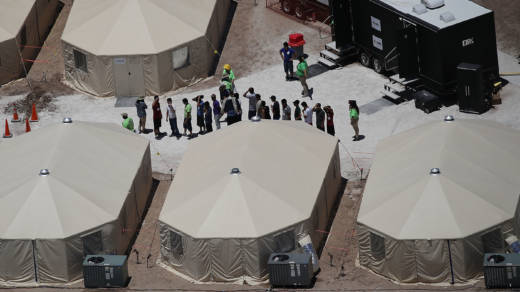A U.S. government lawyer on Tuesday said a long-standing settlement agreement requiring sanitary conditions for detained immigrant children may not necessarily mean a toothbrush and soap must be provided for shorter stays.
Sarah Fabian, senior litigation counsel for the Department of Justice, told a three-judge panel at the 9th U.S. Circuit Court of Appeals in San Francisco the agreement doesn’t list items that must be provided in border facilities.
“There’s fair reason to find those things may be part of safe and sanitary,” she told the panel during an exchange over the conditions in facilities for immigrant children caught crossing the U.S.-Mexico border.
One of the judges then asked whether there could be an instance when a person didn’t need a toothbrush and soap for days. She said possibly for shorter-term stays.
The hearing focused on the U.S. government’s appeal of a federal judge’s 2017 ruling that U.S. authorities breached the agreement after young immigrants caught on the border said they had to sleep in cold, overcrowded cells and were given inadequate food and dirty water.

